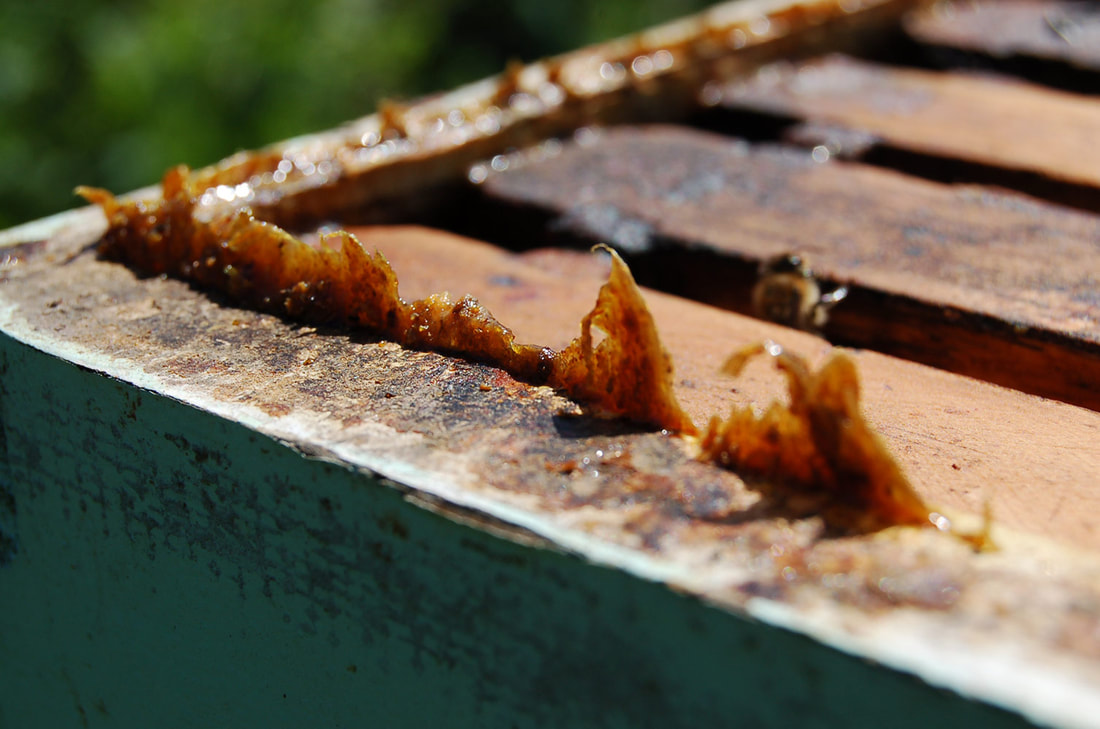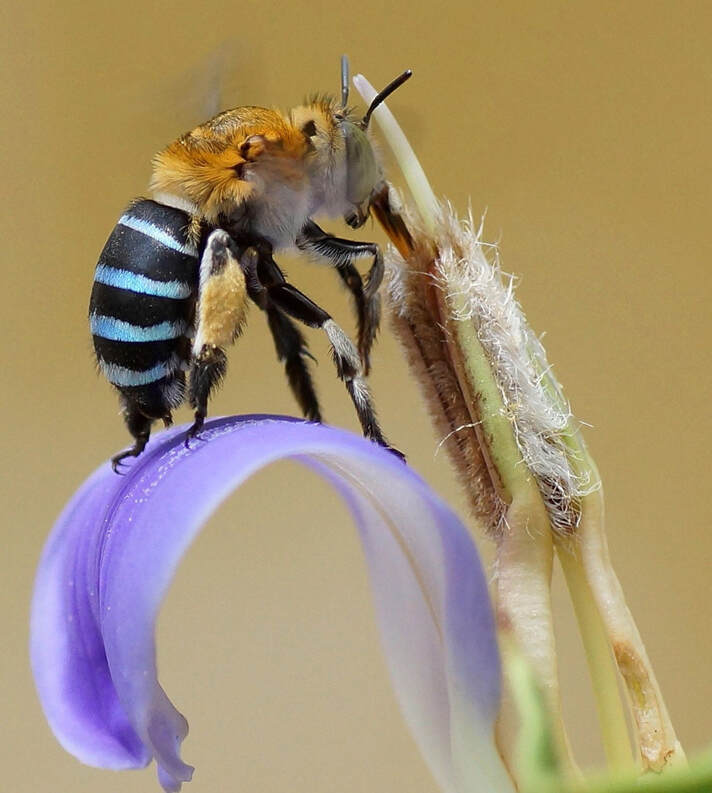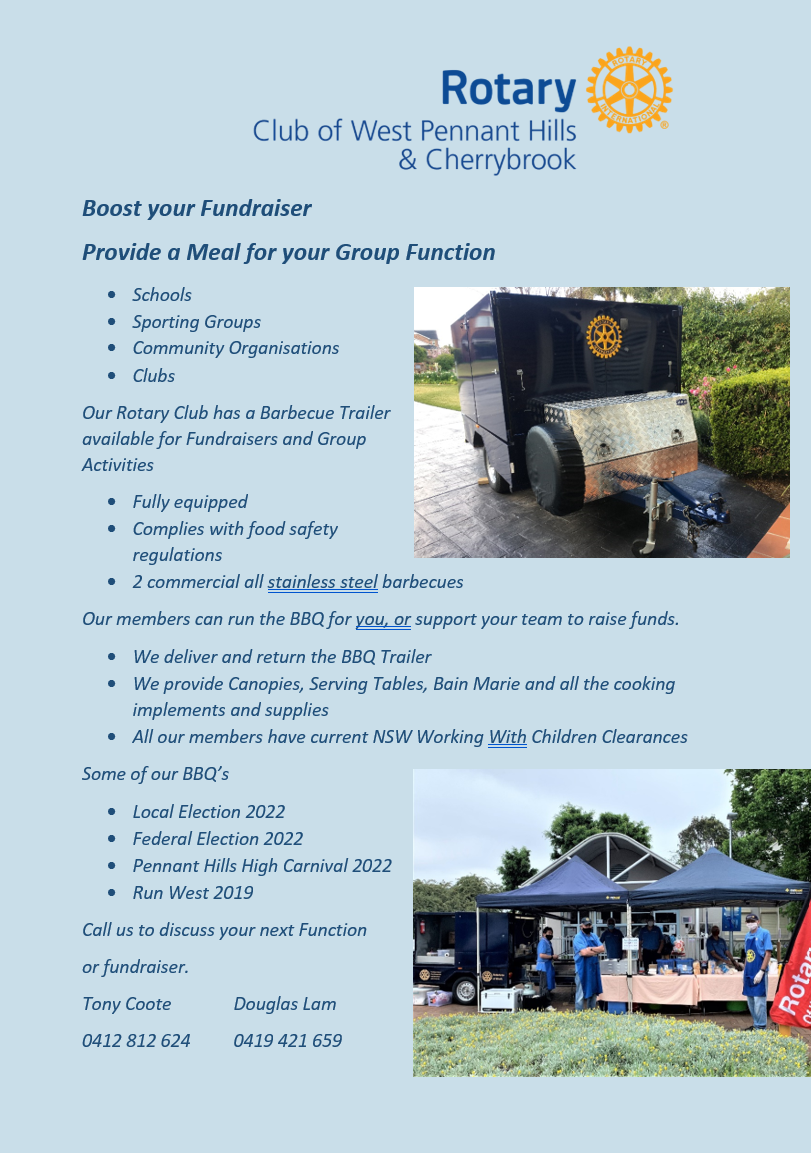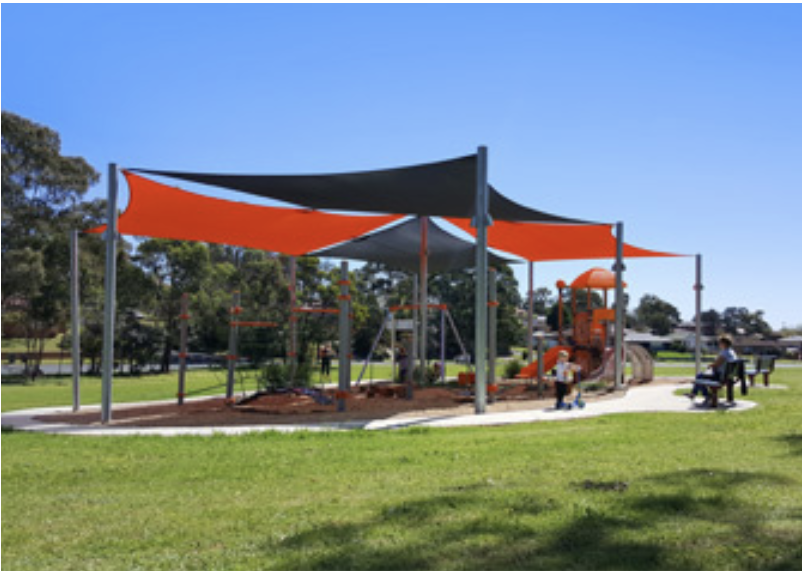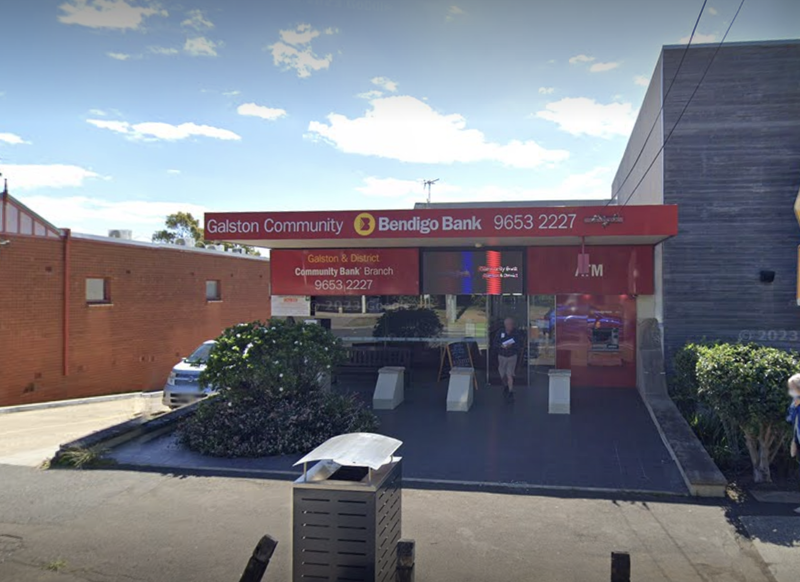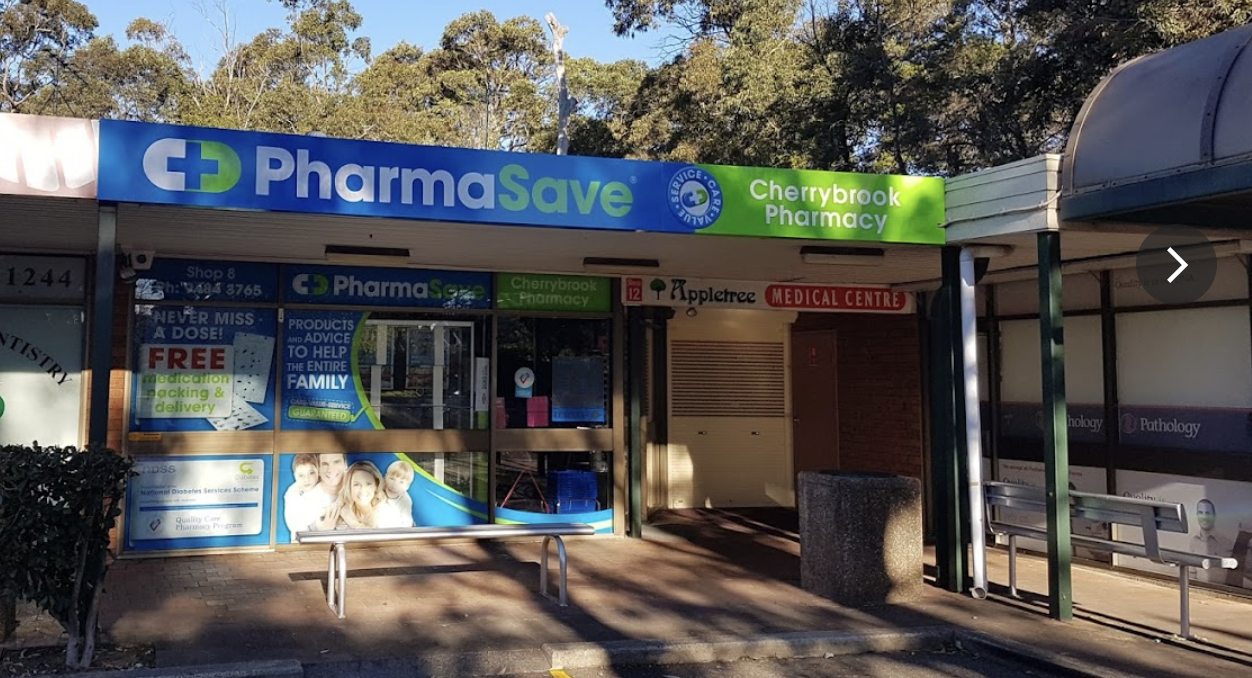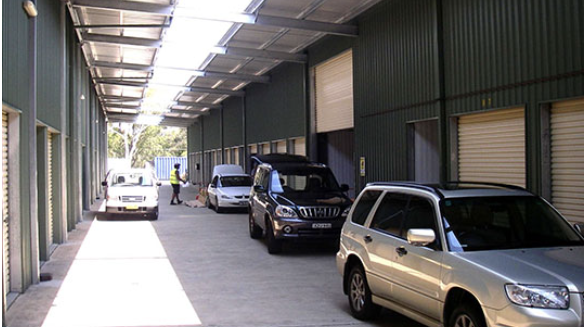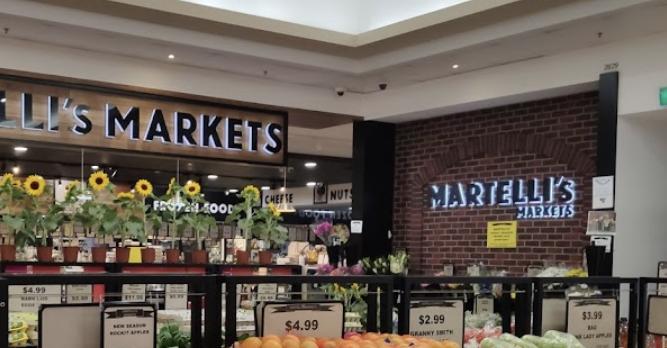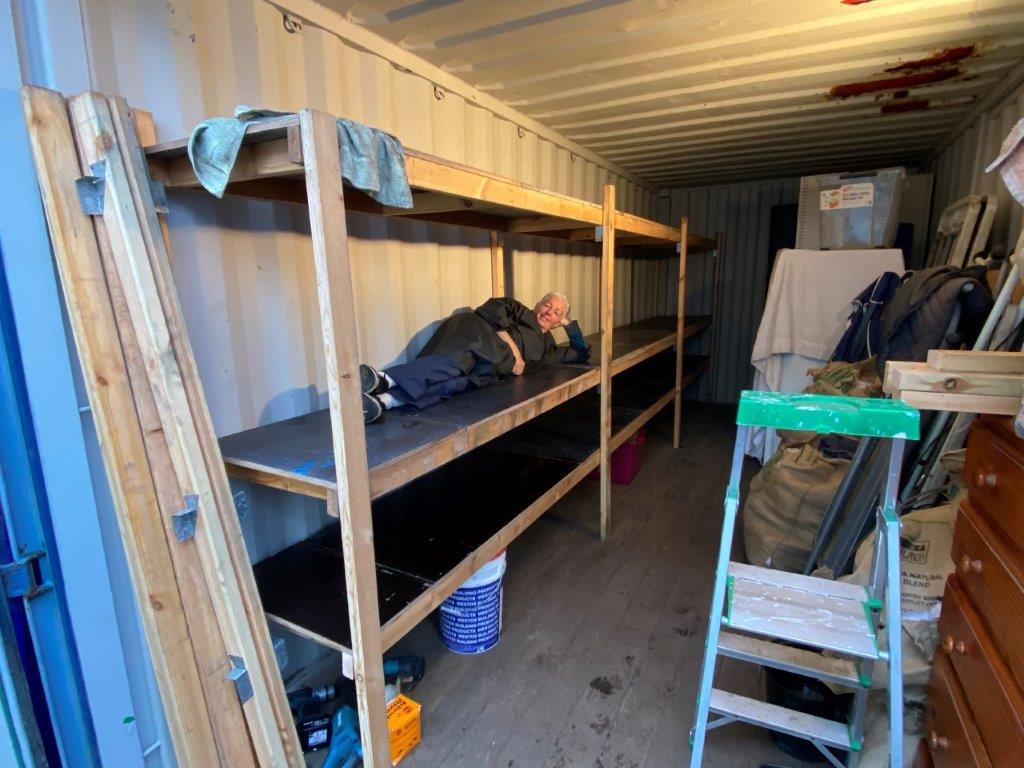Presidents Report
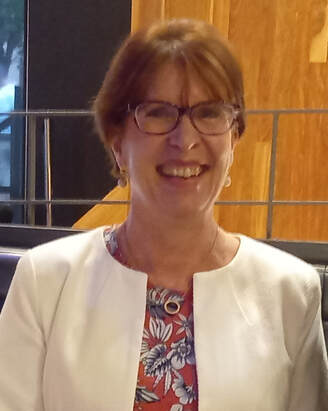
Greetings to all. I trust you enjoyed a happy and relaxing Easter break and didn’t over indulge on chocolate and hot cross buns. Because of the Easter break and no formal meeting last Monday night this report is slightly shorter than usual, but still a good opportunity to remind readers of a few key upcoming events.
This Saturday 15 April is our fundraising BBQ at Bunnings Castle Hill. Kerry has this well organised and we have a good crew organised to support what we hope is a busy and profitable event.
Our meeting on Monday 24 April will be our annual ANZAC Commemoration Dinner with the WPH&C Lions Club. This will take place at West Pennant Hills Sports Club commencing at 6.30 for 7pm start. The cost is $49 per person and is open for both members and partners to attend. This year there will be two outstanding speakers: Major Stan Beaman (AACC) talking about Australia’s involvement in the Vietnam War, and Captain Heng Yew Khong (AACC) speaking on the fall of Singapore in WWII. Attendance RSVP and payment will be collected by our Club next week, so please look out for the meeting notification and respond at that time.
Peter and I are off to Canberra on Friday 28 April where Peter is the guest speaker at the 2023 Annual NTA Fundraising Dinner. Some members have expressed interest in supporting this event but are unable to commit to travelling to Canberra to attend this function. If this is the case, please let Peter or I know, and we can advise on how to donate to this event to support the work of NTA.
And finally, the Mother’s Day Market on Saturday 6 May is fast approaching, and the Club will have a number of its own stalls at this event. So, we need to call upon our fabulous bakers to again help us bake up some scrummy cakes and treats, and we need supplies of plants (small stock) for our plant stall. If you can help with either or both, please let me know for the cake stall and Carol for the plant stall.
And that’s the Buzz for the week my friends. Pease join us at Springfield House on Monday 17 April where our guest speaker is Avishen Saurty who’ll be talking about championing humanity: how healthy communities form around mental illness. Janelle
This Saturday 15 April is our fundraising BBQ at Bunnings Castle Hill. Kerry has this well organised and we have a good crew organised to support what we hope is a busy and profitable event.
Our meeting on Monday 24 April will be our annual ANZAC Commemoration Dinner with the WPH&C Lions Club. This will take place at West Pennant Hills Sports Club commencing at 6.30 for 7pm start. The cost is $49 per person and is open for both members and partners to attend. This year there will be two outstanding speakers: Major Stan Beaman (AACC) talking about Australia’s involvement in the Vietnam War, and Captain Heng Yew Khong (AACC) speaking on the fall of Singapore in WWII. Attendance RSVP and payment will be collected by our Club next week, so please look out for the meeting notification and respond at that time.
Peter and I are off to Canberra on Friday 28 April where Peter is the guest speaker at the 2023 Annual NTA Fundraising Dinner. Some members have expressed interest in supporting this event but are unable to commit to travelling to Canberra to attend this function. If this is the case, please let Peter or I know, and we can advise on how to donate to this event to support the work of NTA.
And finally, the Mother’s Day Market on Saturday 6 May is fast approaching, and the Club will have a number of its own stalls at this event. So, we need to call upon our fabulous bakers to again help us bake up some scrummy cakes and treats, and we need supplies of plants (small stock) for our plant stall. If you can help with either or both, please let me know for the cake stall and Carol for the plant stall.
And that’s the Buzz for the week my friends. Pease join us at Springfield House on Monday 17 April where our guest speaker is Avishen Saurty who’ll be talking about championing humanity: how healthy communities form around mental illness. Janelle
Australia's Native Bees An article from Australian Academy of Science. Australia's native bees - Curious (science.org.au)
Australia’s highly diverse native bees range in size from a 2 millimetre midget (the Quasihesma bee) to what in comparison is a 24 millimetre flying bus (the great carpenter bee, Xylocopa). Most Australian native bees are solitary—a single female builds a nest and lays her eggs before dying in autumn, leaving behind larvae that develop over winter. Some are semi-social, however—several female bees cooperate to build a nest, in which they all lay eggs. There are also 14 species of ‘social’ native bees that form large colonies in similar ways to European honeybees and produce honey—including the famous bush tucker, ‘sugarbag’. These are known as ‘stingless’ bees because, unlike the honeybee, they don't have a stinger.
While most native Australian bees are solitary rather than social and so cannot be kept in hives, and the few native species that are social are difficult to keep in large numbers, there are good reasons to promote the role of native bees in agricultural pollination. For example, native bees may be less susceptible than European honeybees to invasive pests. Two species of native stingless bee, Tetragonula carbonaria and Austroplebeia australis, have been shown to have excellent defences against the small hive beetle, which can have a devastating impact in the hives of the European honeybee. Both use a range of strategies against the beetle, including entombing it (and its eggs and larvae) in droplets of resin known as propolis.
While most native Australian bees are solitary rather than social and so cannot be kept in hives, and the few native species that are social are difficult to keep in large numbers, there are good reasons to promote the role of native bees in agricultural pollination. For example, native bees may be less susceptible than European honeybees to invasive pests. Two species of native stingless bee, Tetragonula carbonaria and Austroplebeia australis, have been shown to have excellent defences against the small hive beetle, which can have a devastating impact in the hives of the European honeybee. Both use a range of strategies against the beetle, including entombing it (and its eggs and larvae) in droplets of resin known as propolis.
|
Some native bees can protect their hive from invaders like the small hive beetle by entombing the unwelcome guests in stiky propolis. Image adapted from: Katie Lee; with permission |
Some native bee species could become important pollinators of agricultural crops. Recent research at Western Sydney University and the University of Adelaide has shown the blue banded bee, a solitary bee of the genus Amegilla, to be more efficient than European honeybees at pollinating greenhouse-grown tomatoes. Blue banded bees ‘buzz’ pollinate—meaning that their wings vibrate at such a rate that they cause the flower’s pollen capsules to burst—a technique well-suited to tomatoes. Blue banded bees have been shown to cope well in a greenhouse environment and researchers are now developing a commercially viable breeding program for the species.
Another agricultural crop that has been shown to be pollinated effectively by native bees (in this case, the social Tetragonula species) is macadamia, itself an Australian native. An estimated 6 million macadamia trees in Australia produce around 35,000 tonnes of macadamia nuts per year.
Another agricultural crop that has been shown to be pollinated effectively by native bees (in this case, the social Tetragonula species) is macadamia, itself an Australian native. An estimated 6 million macadamia trees in Australia produce around 35,000 tonnes of macadamia nuts per year.
|
Blue banded bees have been found to ‘buzz’ pollinate, bursting pollen capsules of crops like tomato. Image adapted from: Chiswick Chap; CC BY-SA 4.0 |
|
This article was adapted from Academy website content reviewed by the following expert: Professor Boris Baer Professor for Pollinator Health, Centre for Integrative Bee Research, Department of Entomology, University of California
|
Night Report |
No Report
|
Photos
|
No photos this week.
|
Humour
Some Excellent One-liners ... contributed by Cawas
|
|
Take a Break... contributed by Neville
|
|
More on Relationships (with an Irish taste) ... contributed by Neville
|
|


